Studies examining the case against and evidence of the impact of transferring services and functions to arms length companies, trusts and quangos.
Transfers and Externalisation
Published on 26th April 2005. Last updated 29th May 2017.
-
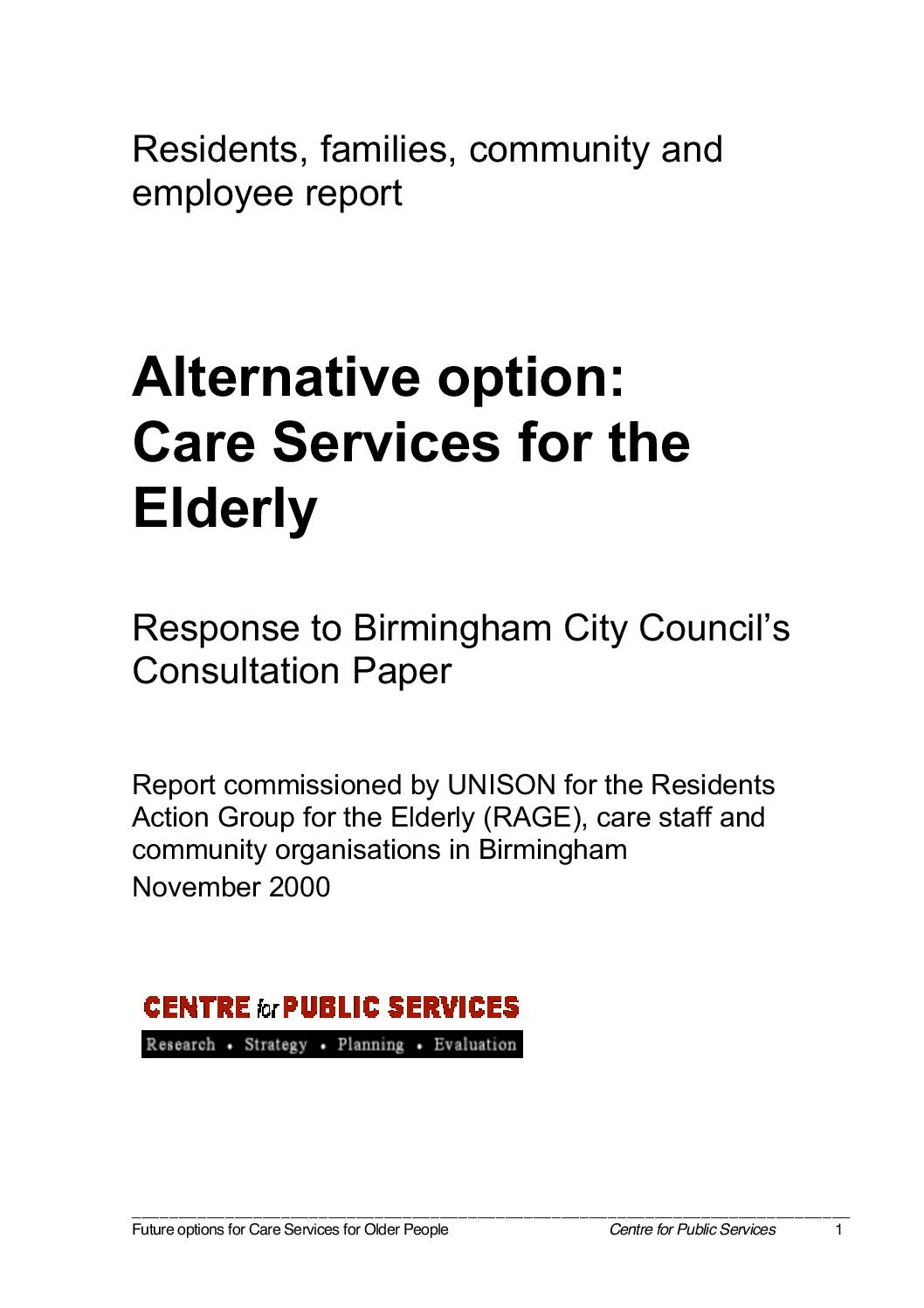
Alternative Option: Care Services for the Elderly in Birmingham
This report is written in the context of a critique of Birmingham Social Services Department’s Best Value review of care services for the elderly. It documents the findings and recommendations of the RAGE consultation of service users, families, local community organisations and staff directly working in the residential care service in October/November 2000 and presents…
-
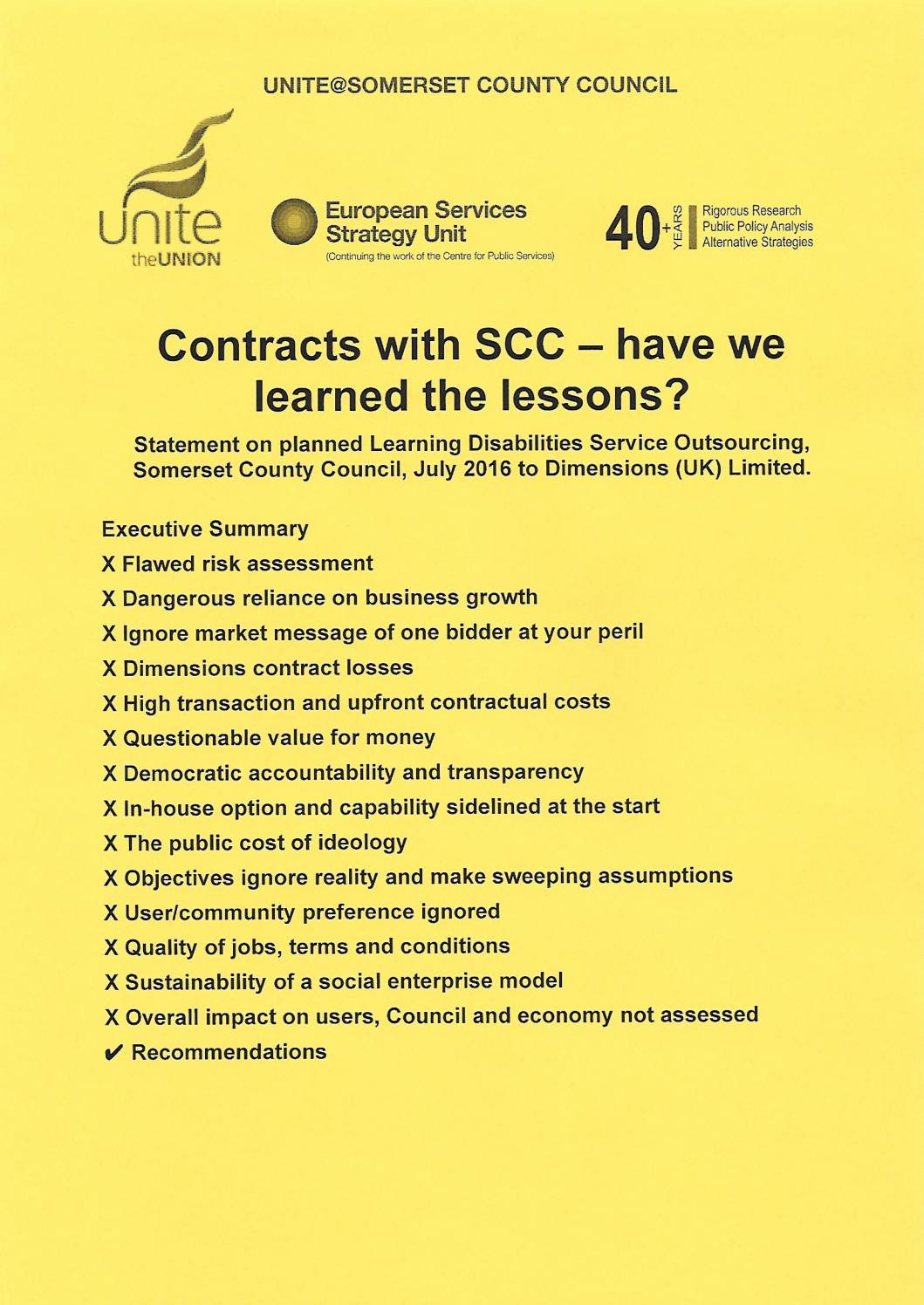
Transfer of Somerset’s Learning Disability Service to a social enterprise
Two joint briefings by UNITE Somerset and ESSU on the transfer of Somerset County Council’s Learning Disability Provider Service (LDPS) to a social enterprise operated by Dimensions (UK) Limited. The first briefing (July 2016) made the case against transfer and recommended an improved in-house service. The second (March 2017) detailed the draconian changes to all…
-
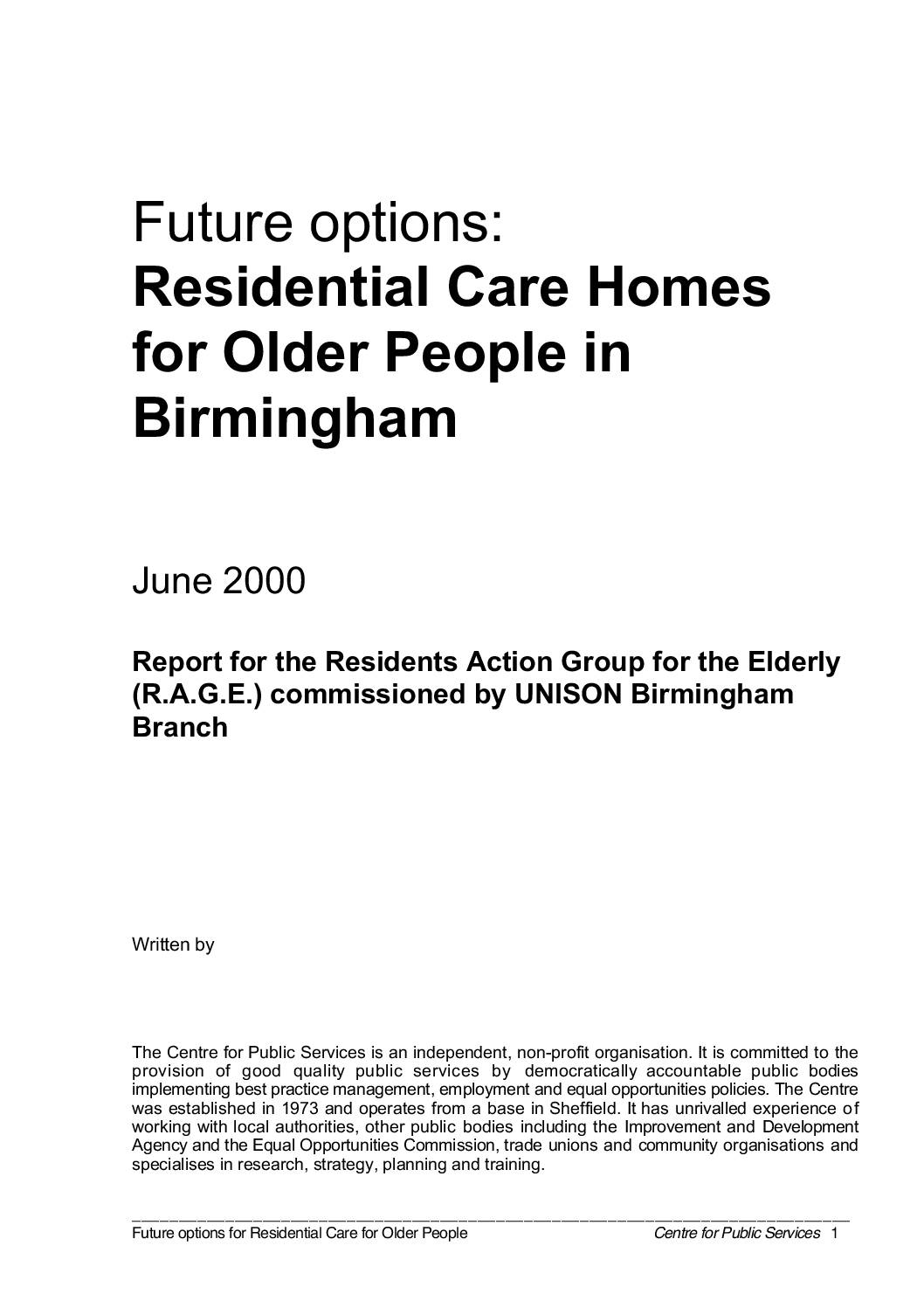
Birmingham Residents Action Group for the Elderly
This report was written in response to the proposed transfer of Birmingham City Council’s residential care homes into the hands of an independent trust, and contains a detailed analysis of the issues arising when such public services are transferred to independent trusts. The report contains market analysis of the conditions in which independent trusts must…
-
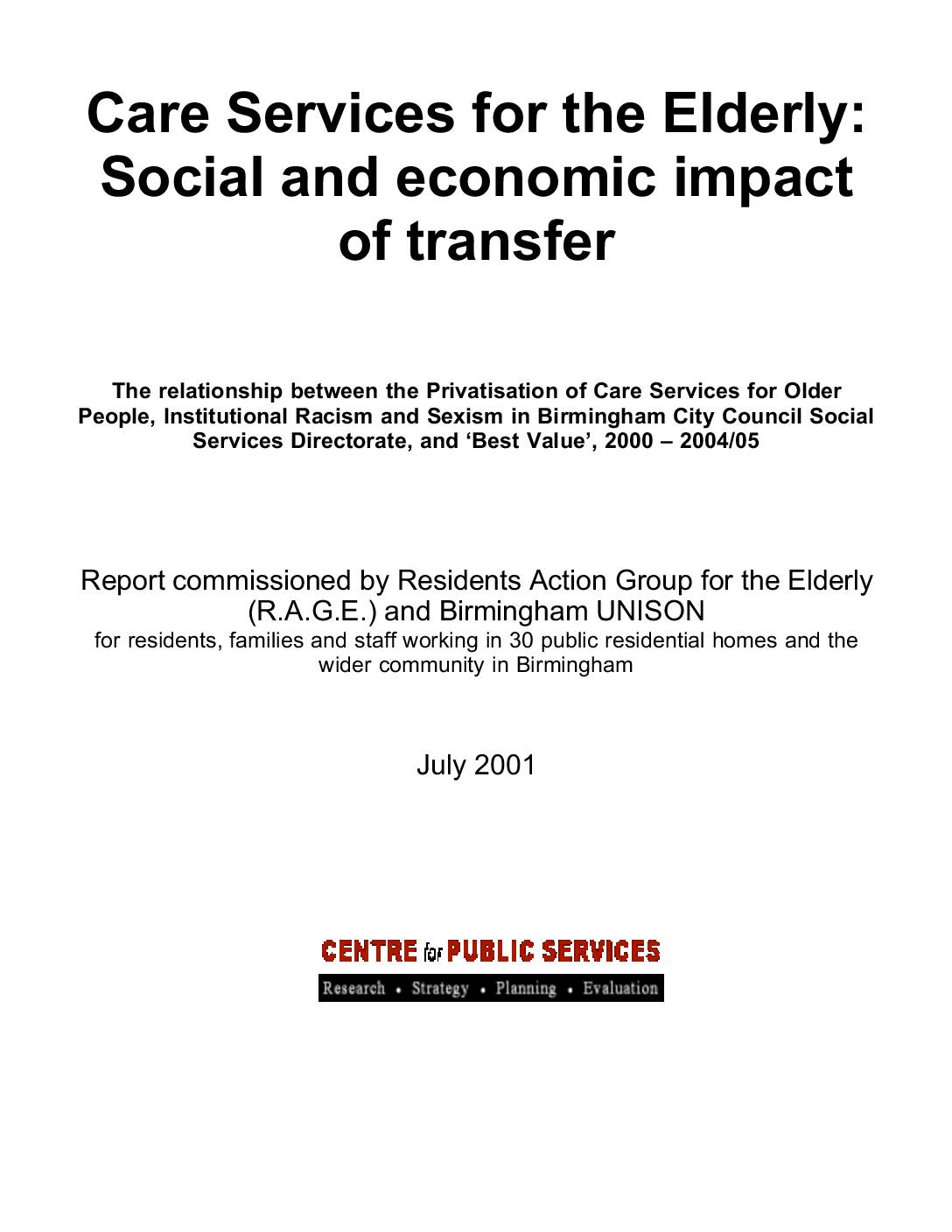
Care Services for the Elderly: Social and economic impact of transfer
This report is the culmination of the centre’s research, commissioned by RAGE and Birmingham UNISON, into the issues surrounding the privatisation of care services for the elderly in Birmingham. The report contains a comprehensive analysis of the wide-ranging social and economic implications of the transfer of care services to the private sector, and demonstrates the…
-

City Design – The New Agenda
City Design, Newcastle City Council’s architectural department, was facing decline and possible closure in 2003/04. This report, commissioned by Newcastle City UNISON from the Centre for Public Services, examines the future demands for high quality design of public buildings, public spaces and the public realm. It examines the options for the service and includes a…
-
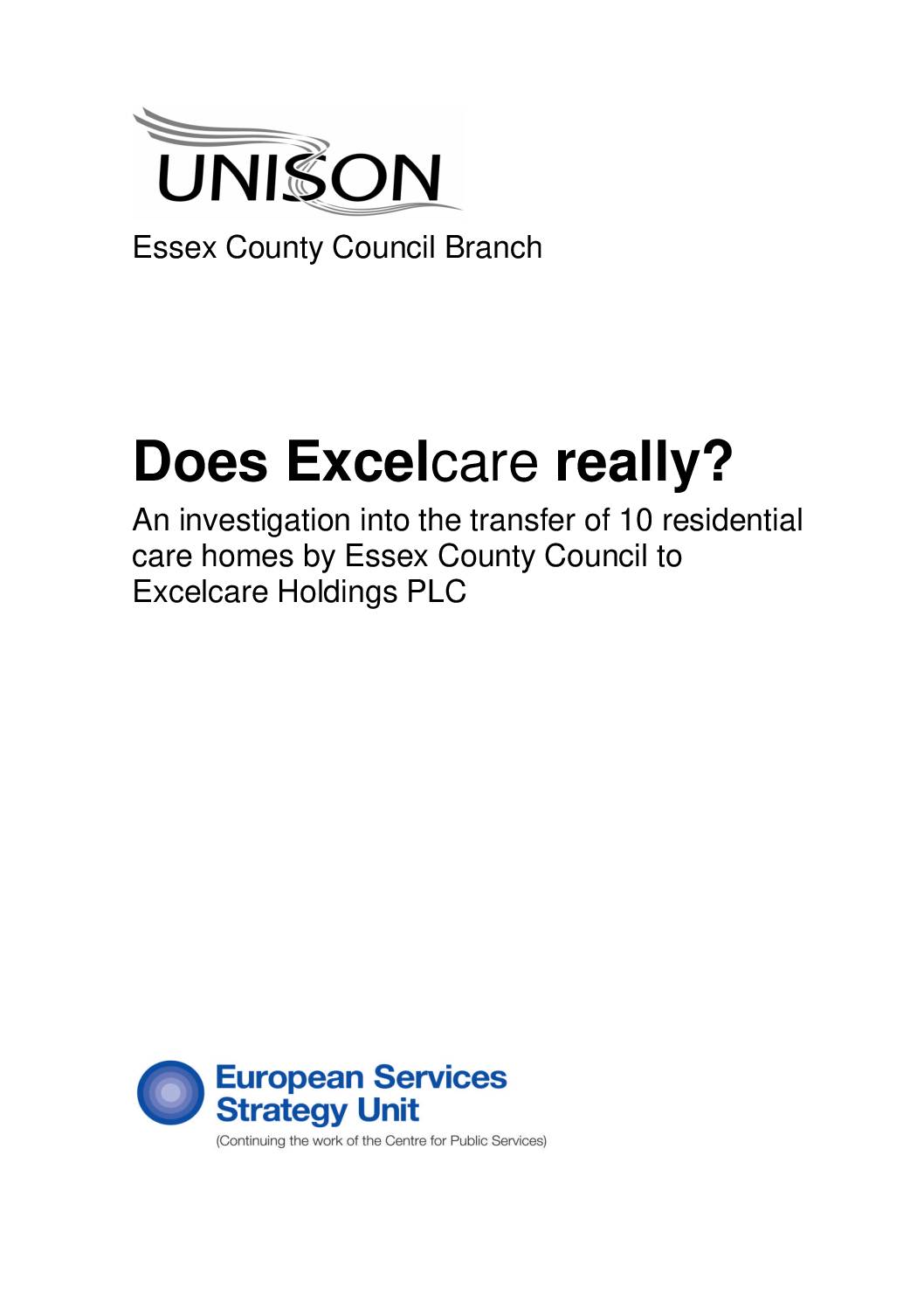
Does Excelcare Really?
Essex County Council sold it’s ten remaining care homes in 2005 to Excelcare Holdings Plc. Staff were assured that TUPE would protect terms and conditions and would last “indefinitely”. Less than two months later, Excelcare demanded changes in rotas and working hours, followed by radical changes to terms and conditions which included a reduction in…
-
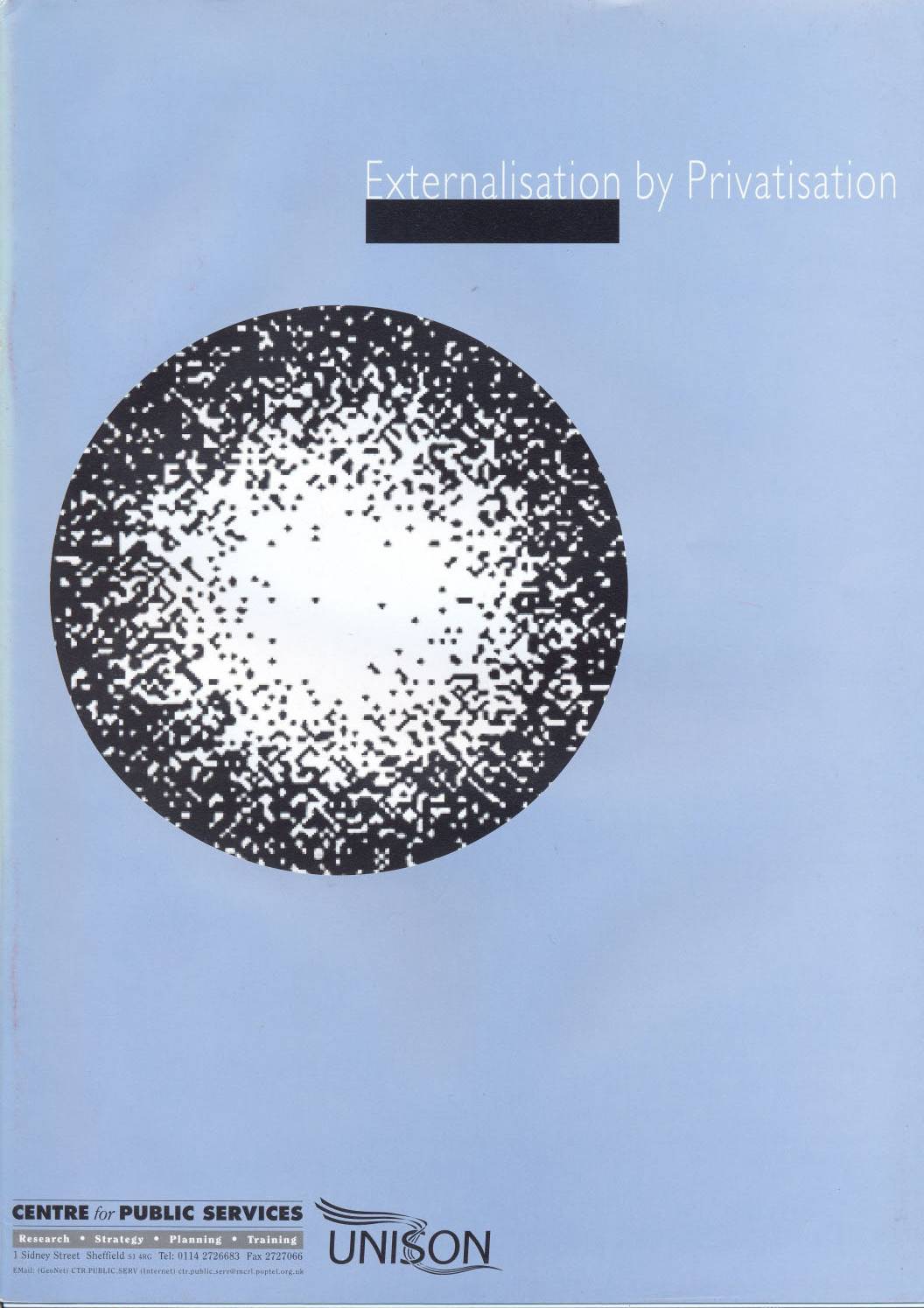
Externalisation by Privatisation
Externalisation is a form of privatisation which is often couched in carefully worded language in order to hide its true impact- ‘joint working’, ‘partnership’, and ‘collaborative working’. This report uncovers the truth behind the jargon, exposing the true nature of the externalisation of services and the wide range of negative consequences, and making the case…
-

From Sports and Leisure Provision to Neighbourhood Management: A Strategy for Sport and Leisure in Newcastle
Newcastle City UNISON commissioned this report from the Centre for Public Services which successfully made the case not to establish a Leisure Trust and to develop leisure services as an integral part of neighbourhood management (2003).
-
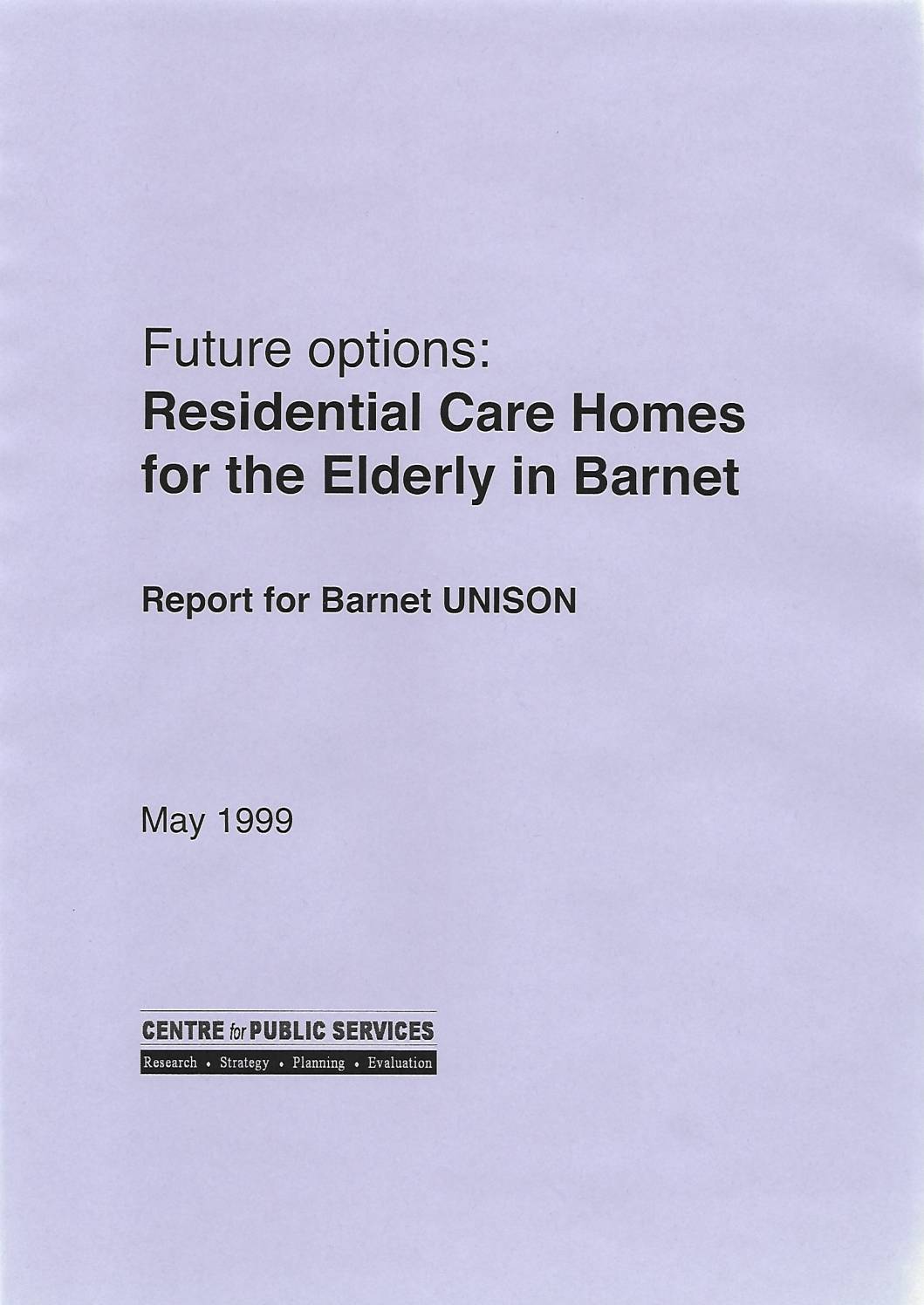
Future options: Residential Care Homes for the Elderly in Barnet
An analysis of management consultants review of the London Borough of Barnet’s care homes and the proposal to transfer the homes to a trust. Commissioned by Barnet UNISON in 1999.
-
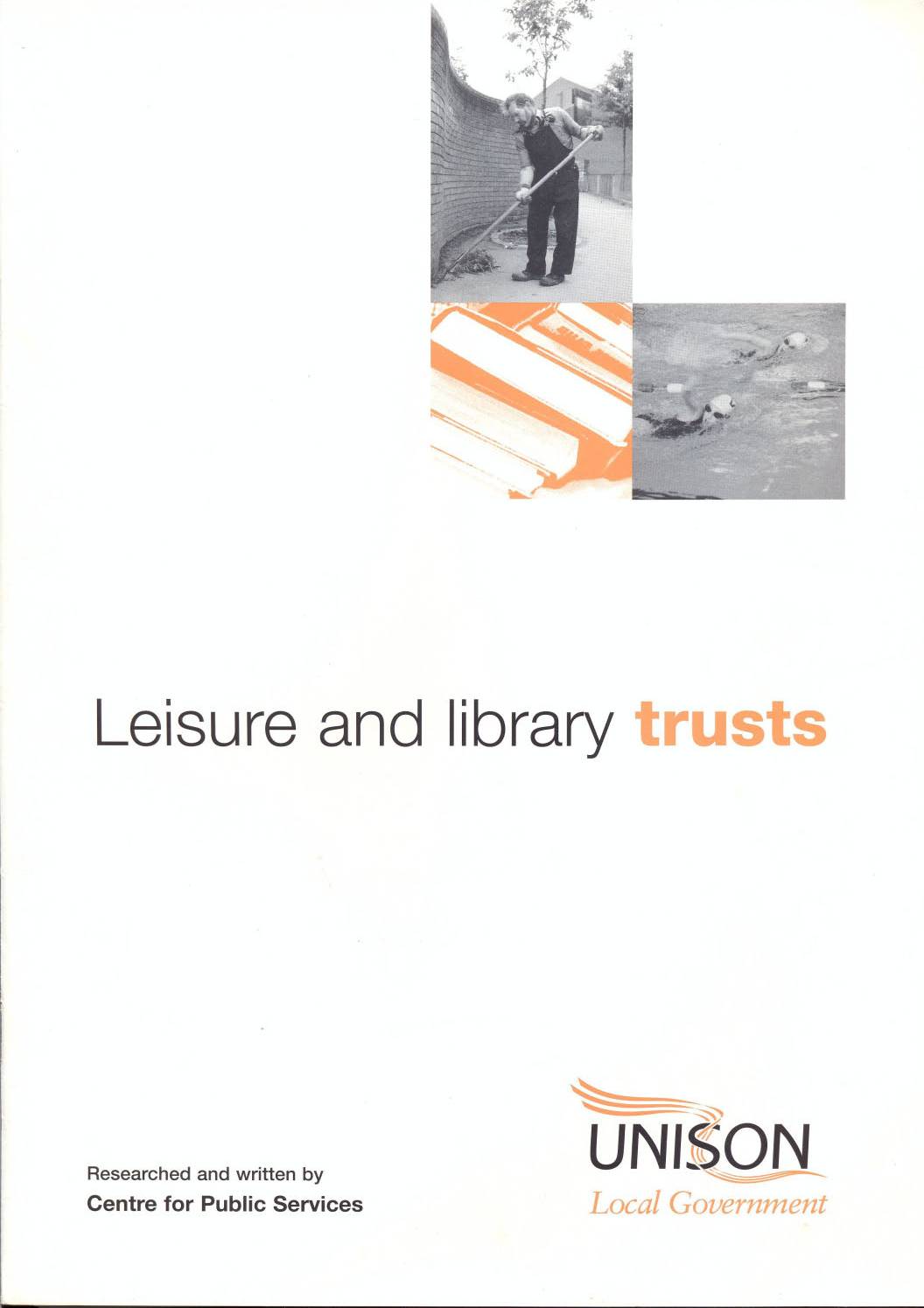
Leisure and Library Trusts
The past decade has seen an increasing presence of independent trusts established to take over public services from local authorities. This report is a detailed analysis of all aspects of leisure and library trusts and includes economic statistical analysis of the trust option, and a set of guidelines for trade unions in dealing with the…

